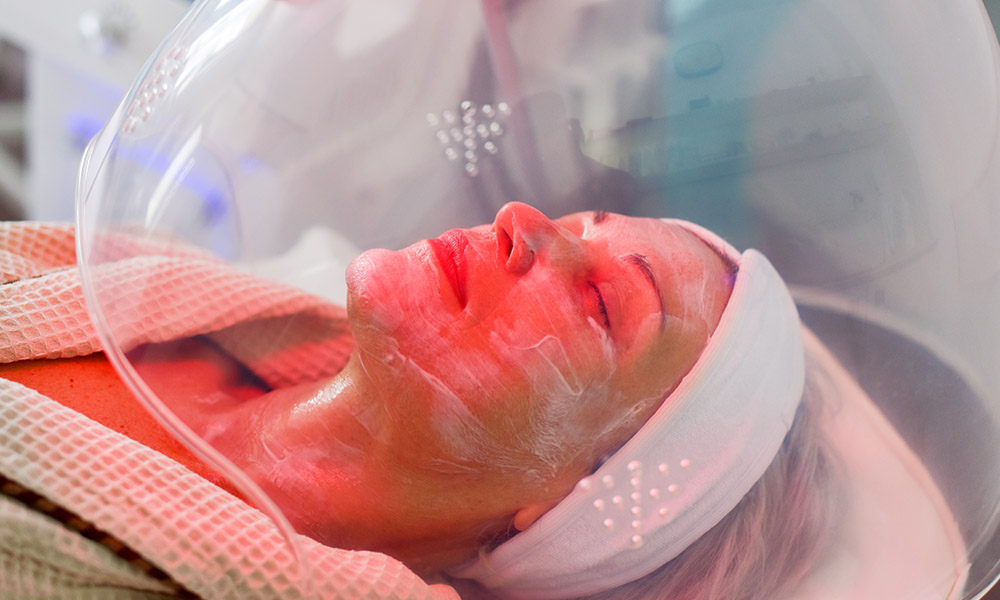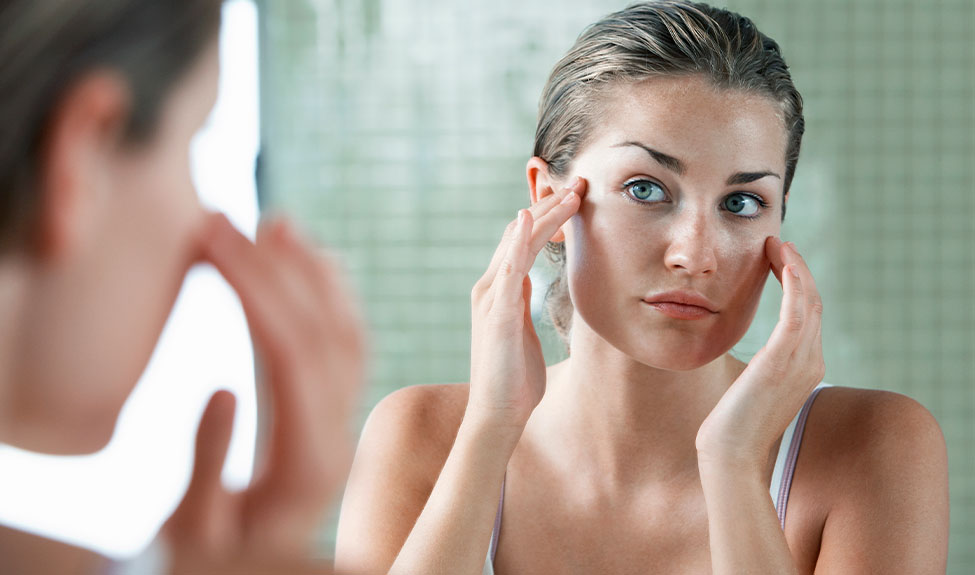Collagen is the most abundant protein in the human body. It’s a major component of the connective tissues and plays an essential role in various bodily functions. Most importantly, perhaps, it gives the skin its structure and strengthens the bones.
During youth and adolescence, the body produces ample collagen to keep the skin smooth and supple. By the time we enter our early 20s, however, collagen production starts to decline by about 1% per year.
Reduced collagen production over time causes the cell structures to weaken. The skin starts to sag under its own weight. It becomes thinner, dryer, and less elastic which leads to the formation of fine lines and wrinkles. The visible effects of aging are a major concern for many spa goers.
To cater to clients with mature skin, it’s essential that you provide collagen-boosting treatments in your spa menu. More importantly, however, you should educate your clients in ways they can boost collagen production at home between treatments.
Spa Treatments to Stimulate Collagen Production

A daily skincare routine is essential for maintaining the health, hydration, and radiance of the skin. For chronic issues like aging, acne, and sun damage, however, professional treatments may be necessary to achieve the desired result.
When it comes to boosting collagen production, there are several professional treatments that can help. Consider including these collagen-boosting treatments in your spa menu:
Microneedling
Also known as “collagen induction therapy”, microneedling is a procedure that involves pricking the skin with tiny needles. The needles create micro-wounds which stimulate the skin to produce more collagen and elastin. As the skin heals, it may look tighter and younger.
LED Light Therapy
This treatment involves the use of various wavelengths of amber, red, blue, and green light – it doesn’t use potentially harmful UV light. In some cases, the LED light therapy treatment is preceded by the application of 5-aminolevulinic acid, a photosensitive drug that helps improve the performance of the treatment.
The different wavelengths of light penetrate the skin to different depths, helping resolve issues with acne, wound healing, and chronic skin issues like psoriasis. It can also help boost collagen production to provide anti-aging benefits.
Plasma-Rich Protein (PRP) Facial
Also known as the “vampire facial,” this treatment stimulates the body’s wound healing response and triggers collagen production. It involves extracting protein-rich plasma from the client’s own blood and concentrating the sample into platelet-rich plasma. From there, the plasma is injected into the skin.
Keep in mind that a PRP facial is a medical rather than a cosmetic procedure. Anyone performing the procedure must be properly trained and licensed.
Intense Pulsed Laser (IPL) Treatment
Also known as a photofacial, intense pulsed light therapy can improve the tone and texture the skin in a minimally invasive way. This treatment uses light energy to target certain colors in the skin to purge it of unwanted cells and trigger the body’s natural healing response.
IPL collagen stimulation therapy involves intermittent pulses of light that penetrate the upper layers of skin to reach the lower layers where collagen is found. The light causes the tissue to vibrate, stimulating new collagen production. This treatment should be performed by a licensed dermatologist.
Dermal Fillers
This treatment is designed to replenish the skin’s natural stores of collagen. Small injections into the skin help smooth fine lines and wrinkles – they may also help with the healing of scars. Because dermal fillers are regulated by the FDA as medical devices, they can only be administered by a trained and licensed professional.
Since some collagen treatments are invasive – and many are expensive – your clients will also likely appreciate your advice for increasing collagen production at home. Read on to learn about natural methods for boosting collagen production you can pass along to your clients.
At-Home Tips to Naturally Boost Collagen Production

While a professional spa treatment can help stimulate collagen production, if your client wants long-lasting results, they need to do some maintenance on their own. Education is an essential component of any spa treatment, so it’s a good idea to provide your client with tips they can enact at home.
Here are some suggestions to help your client naturally boost collagen production:
Use skincare products that contain hyaluronic acid.
Hyaluronic acid (HA) is a humectant that draws in and retains moisture. It can be very effective in hydrating and tightening the skin – some studies even suggest it stimulates collagen production.
Be sure to tell your clients that the absorption of HA may depend on its molecular weight. Smaller HA molecules will penetrate the skin to deeper levels than large molecules, so recommend a product that includes different sizes of HA molecules.
Consume more vitamin C-rich foods.
Vitamin C is an essential nutrient which means the body can’t produce it on its own. Some research suggests that vitamin C plays a role in skin protection as well as collagen production. Good food sources of vitamin C include citrus fruits, leafy green vegetables, cruciferous vegetables, and strawberries.
Take aloe vera supplements.
Aloe vera is a well-known remedy for sunburn but new research suggests that it may also have benefits for collagen production. More specifically, the sterols in aloe. A 2015 study showed that participants taking 40 micrograms of aloe vera gel powder doubled their production of and collagen over an 8-week trial period. Clients can find aloe vera supplements online or in health food stores.
Use skincare products that contain retinol.
Retinol is a form of vitamin A that can be very beneficial for the skin. It belongs to a category of vitamin A derivatives called retinoids which can boost collagen production. Retinoids may also stimulate the production of new blood vessels in the skin to improve skin color and can fade age spots. Tretinoin, a retinoid-derived treatment developed in the 1970s, is commonly used to treat acne.
Take a daily ginseng supplement.
Panax ginseng, more commonly referred to simply as ginseng, is packed with antioxidants. When absorbed into the bloodstream, these antioxidants help protect skin health and may promote the production of collagen. Some studies suggest it may also be able to protect skin against UVB damage.
Aging is an inevitable part of life, and that includes reduced collagen production over time. While you may never be able to restore a client’s collagen production to the level they enjoyed during their youth, administering tailored facial treatments can help slow the process and restore some of the skin’s elasticity. The tips above can also help your clients naturally increase collagen production at home.

